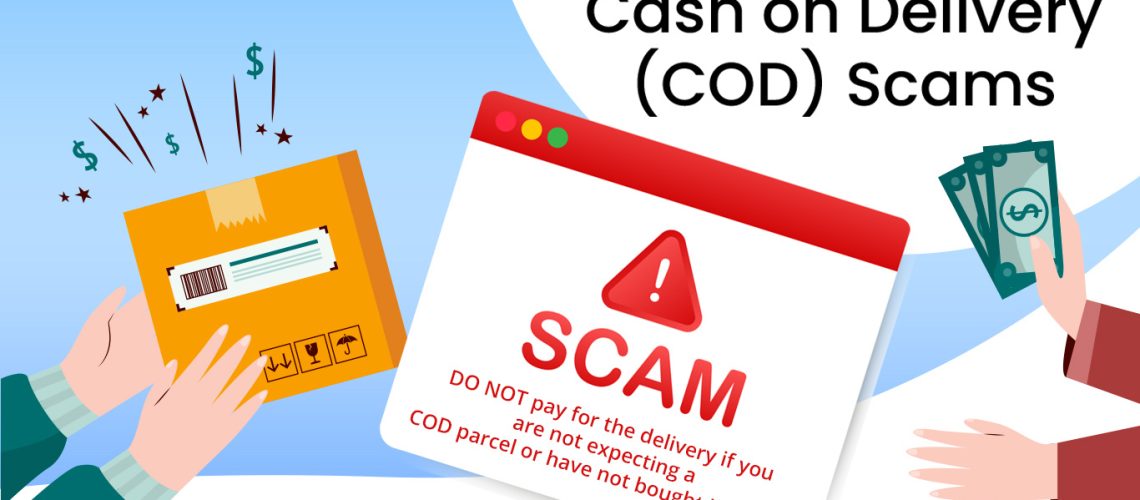Understanding the COD Scam
Cash-on-Delivery (COD) scams are becoming increasingly common, where scammers exploit consumers’ information to send unwanted parcels, often containing low-quality or worthless items. The scam is executed with the hope that the recipient, mistaking it for a legitimate order, will pay for the parcel upon delivery. In this blog post, I will discuss what a COD scam is, how to spot it, and ways to protect yourself. I’ll also share my personal experience with a COD scam attempt, along with FAQs, useful tips, and resources.
What is a COD Scam?
A COD scam occurs when scammers send a parcel to someone’s address with payment due upon delivery. They use the recipient’s name, address, and phone number, obtained from leaked data or social media profiles. These packages usually contain cheap or defective items but are priced much higher than their actual value. People often fall for this scam, thinking a family member might have ordered the item, leading them to pay for an item they never wanted.
My Experience with a COD Scam
I recently encountered an attempt at this scam. Here’s what happened:
- Unexpected Call: My wife received a call from an unknown number. The caller knew complete name, address, and phone number, claiming there was a COD parcel waiting for us.
- Suspicious Request: When we informed the caller that we hadn’t ordered anything, he insisted on sending an OTP to confirm the cancellation. Knowing about OTP scams, I refused to share any code.
- Persistent Scam Attempt: The next day, a person arrived at our house with the package, continuing to insist we had to accept the parcel and asked again for the OTP.
- Firm Refusal: I stood firm, refused to accept the parcel or share any OTP, and finally, the frustrated scammer left.
- Courier Service Messages: Even after refusing the parcel, there were messages from courier company sent daily as a reminder of missing the shipment delivery.
This experience revealed the audacity of scammers, who even show up in person to pressurize you. Here are some signs of a COD scam and steps you can take to protect yourself.
How to Spot a COD Scam
Here are key indicators to help you spot a potential COD scam:
| Sign | Description |
|---|---|
| Unexpected Package | You receive a COD parcel you didn’t order. |
| Pressure to Pay or Accept | Delivery person insists that you must accept the parcel. |
| Request for OTP | Caller claims you need to share an OTP to cancel the delivery—classic sign of a scam. |
| Unclear Sender Information | Delivery person cannot identify the company sending the package. |
| Inferior Quality Items | Packages often contain cheap or poor-quality items not worth the amount requested upon delivery. |
Steps to Avoid COD Scams
- Refuse Unordered Deliveries: Politely decline any COD parcels you didn’t order, even if they contain your personal information.
- Do Not Share OTPs: Never provide OTPs or verification codes over the phone, especially if unsolicited.
- Verify the Source: If the delivery person insists, ask for specific details about the sender and check with your family members.
- Report to Authorities: Report suspicious delivery attempts to the nearest police station or consumer helpline in your area.
- Raise Awareness: Share your experience on social media and inform others to help prevent such scams.
Recommended Videos on COD Scams
Check out this video, to further understand the scope of COD scams
Frequently Asked Questions (FAQs)
Q1: What should I do if I accidentally accepted a COD scam parcel?
A: If you accepted a parcel and realize it was a scam, immediately report it to your bank (if a payment method was involved), local police, and the e-commerce company (if they were impersonated).
Q2: Can I get my money back if I’ve paid for a COD scam parcel?
A: Unfortunately, it can be challenging to get a refund for COD scams, as most payments are untraceable cash transactions. Reporting the case may help authorities track down the scammer.
Q3: How did the scammer get my personal information?
A: Scammers often access personal data from public sources or data leaks. It’s essential to limit the personal information you share online and avoid listing your address or phone number publicly.
Q4: Is it safe to accept COD orders at all?
A: Yes, COD orders are generally safe if you’ve personally placed the order. Just be cautious about accepting COD parcels from unknown sources.
Be Alert
COD scams are a rising issue, taking advantage of people’s goodwill and the assumption that parcels are legitimate. Staying informed and vigilant is crucial. By recognizing the warning signs, refusing suspicious packages, and sharing awareness, you can help stop scammers in their tracks. Have you or someone you know faced a similar scam? Share your experiences in the comments to help others stay safe!
Keywords:
COD scam, cash on delivery scam, avoid COD scam, how to spot COD scam, COD fraud, cash on delivery fraud, online shopping scam, fake COD parcel, unsolicited COD package, protect from COD scam, what is COD scam, report COD scam, recognize COD scam, COD scam prevention tips, warning signs COD scam, fake COD delivery, refuse COD parcel, cash on delivery scam India, unsolicited parcel scam, COD scam awareness, OTP fraud, avoid OTP sharing, fake parcel scam, delivery scam, unwanted COD order, report COD fraud, online fraud protection, COD scam experience, fake order scam, suspicious COD package, scam prevention tips, COD scam customer protection, cash on delivery parcel scam, unauthorized COD order, COD scam reporting, fake product COD, avoid cash on delivery scam, stop COD fraud, online order scam, COD fraud warning signs, parcel delivery scam, COD scam story, protect against COD fraud, how to avoid COD scams, unsolicited delivery scam, fake delivery scam, safe online shopping tips

BBR is largest active consumer community. Amplifying consumer voice since 2018.
